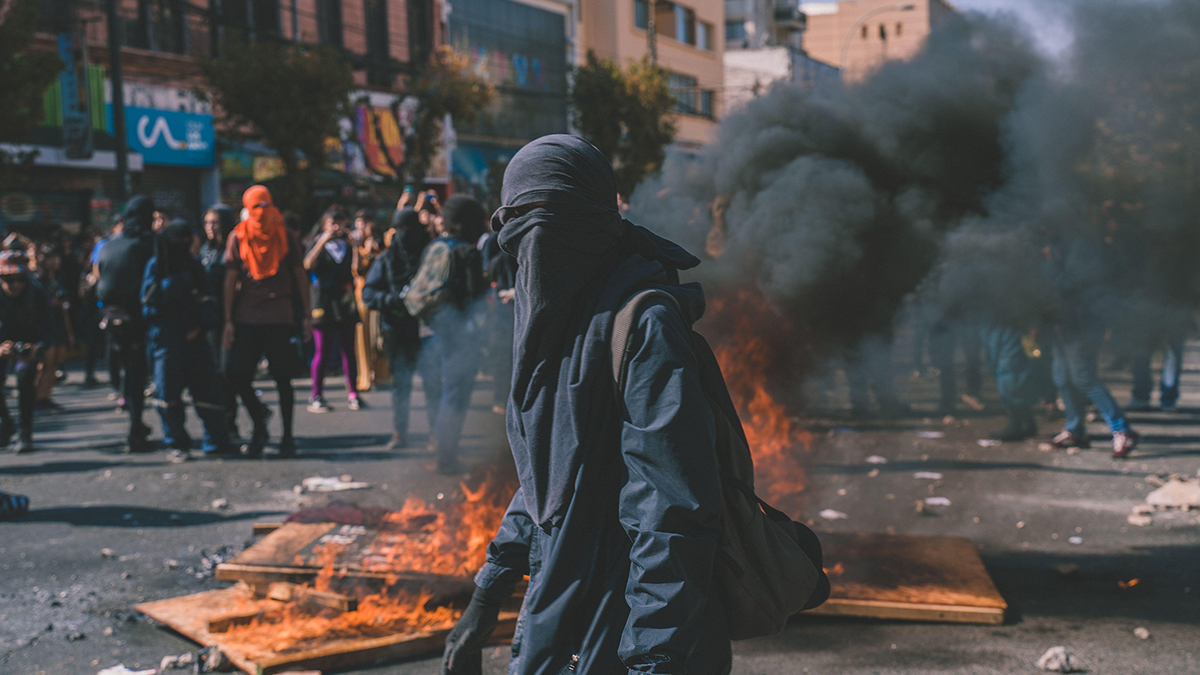Political violence market hardening amid rising losses: AGCS
Allianz's corporate insurance operation says rising civil unrest risk and the significant losses incurred by the standalone political violence and terrorism insurance market in recent years have led to a tightening of capacity and increased rates
Insurer warns of rising civil unrest risk driven by the war in Ukraine, the cost of living crisis and social divisions
Political violence insurance has entered a hard market as specialist providers withdraw capacity, Allianz Global Corporate & Specialty (AGCS) said.
The insurer reported an increase in demand for specialist cover for political violence because traditional property/casualty insurers are reducing their exposure to the market.
It comes amid rising civil unrest risk, with businesses facing $12bn of losses from strikes, riots and civil commotion in recent years, according to AGCS data.
At the same time, the significant losses incurred by the standalone political violence and terrorism insurance market have led to a tightening of capacity and increased rates.
AGCS said it expects the trend of increasing social unrest, which began during the 2008 financial crisis, to continue through 2023, fuelled by the war in Ukraine, the cost of living crisis, increasing polarisation and greater distrust of government institutions.
“The buying habits and demand remain the same for full political violence perils, but due to the significant losses to the standalone political violence and terrorism insurance market, there has been a significant tightening in capacity and increase in rates,” Srdjan Todorovic, head of political violence and hostile environment solutions at AGCS, said.
The hard market has prompted buyers to reconsider their limits and coverage needs, Todorovic continued. “Often, to maintain expiring premiums spend, limits are halved and terms are more restrictive,” he said.
“The buying habits and demand remain the same for full political violence perils, but due to the significant losses to the standalone political violence and terrorism insurance market, there has been a significant tightening in capacity and increase in rates”
Srdjan Todorovic
Allianz Global Corporate & Specialty
Civil unrest risk rose in more than half of countries between the second and third quarter of 2022, according to Verisk Maplecroft, with AGCS now ranking political violence as a top-10 peril.
AGCS said there had been more than 400 significant anti-government protests since 2017, including several multibillion-dollar events in recent years.
This included $1.3bn-worth of losses caused by infrastructure damage and lost output in Peru during protests between December 2022 and January 2023; $1.9bn in insurance claims following the July 2021 riots in South Africa; and $3bn of economic losses following the 2021 anti-government protests in Colombia.
“The threat is changing and although many of the reasons for it are universal – whether economic, political, or environmental – it can play out differently in different regions, with various levels of violence and disruption,” Todorovic said.
“Operational and security management within organisations should view the current climate as a catalyst for evaluating best practices and policies around preparing locations and employees for potential civil unrest and building resilience.”



